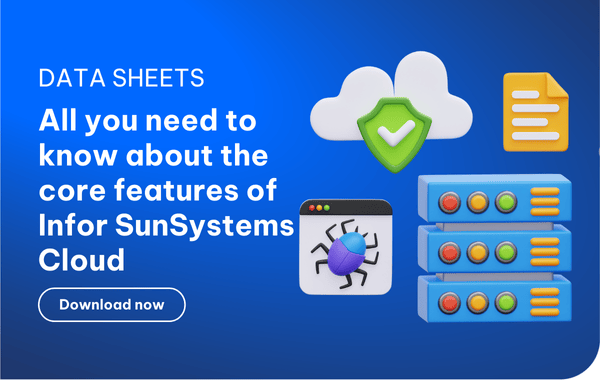Our previous article has emphasised the impacts of Accounts Payable (AP) on vendor relationships, and a well-managed AP can enable companies to take advantage of vendor payments.
Findings from an Aberdeen Group survey demonstrate that several other factors encourage companies to focus on their accounts payable.
Read more: Overcome Reporting Challenges of On-Premises Systems for the C-Suite
Those factors include but are not limited to:
- A lack of visibility into invoices and AP documents
- The high cost of the invoice process
- And cash management.
In this article, we will dive deeper into challenges with legacy AP processes and the strategic impacts of transformed AP in businesses.
.jpg?width=2201&height=1467&name=nature-revier-sunset-banner%20(2).jpg)
Contents
Common accounts payable problems
To be more specific, the common process of handling AP is simply a passive function bogged down in paper invoices and manual processes. This traditional method has led to numerous problems below.
Information overload
AP activities obviously involve lots of documents and information. As businesses grow, so does the mountain of invoice documents, leading to costly storage needs, cumbersome access, and the potential for document loss.
For one, the cost to store these documents increases with every single paper invoice. All these documents are challenging to access, manage, and track, often causing duplicate information, and duplicate payments, not to mention hamper efficiency and transparency.
Read more: How to Tell If Your Enterprise Needs a Document Management System
Inefficient invoice processing
An accounts payable process in which invoice information is delivered to different people, in different departments, or even in different business locations across the organisation for approval. Consequentially, they create delays in payment and information flow, communication bottlenecks, and the possibility of missing or distorting information.
Needless to say, the inability to deliver the right information to the right person on time negatively impacts decision-making. A potential solution to this problem is to adopt e-invoicing.
Read more: The Benefits of E-Invoicing
Invoices collation from different suppliers
Suppliers use diverse formats, channels (e.g., email or fax), and currencies for invoices, which complicates the collation process, especially for businesses with multiple business locations.
Moreover, matching invoices with purchase orders, allocating them to appropriate cost centres, and matching payment information with accounting systems are additional common errors.
Read more: Get Productive with These 7 Tips for Document Management
Manual entry errors
Data entry errors resulting from manual invoice processing can be time-consuming to rectify, wasting valuable resources that could otherwise be used for more strategic activities. Additionally, the dynamic and complex environment of AP poses a challenge when handling exceptions—whether they are non-standard invoices or documents with discrepancies.
Not to mention inaccuracies and delays in closing as companies struggle to validate payments for certain invoices, causing them to miss their closing deadlines.
All represent a lack of control and visibility into AP. Issues concerning compliance costs also force companies to focus on and increase their financial transparency to avoid fraud and ensure disclosure and audit requirements can be met.
Find out: How to successfully adopt Accounts Payable automation
These challenges mentioned above are just a glimpse into the common constraints faced by traditional AP processes. As compliance costs continue to soar, companies are increasingly compelled to prioritise financial transparency. This not only serves as a deterrent against fraud but also ensures that disclosure and audit requirements are met promptly.
The changing role of the Accounts Payable function
The role of Accounts Payable is undergoing a dramatic transformation. Modern businesses acknowledge that AP is not just about paying bills; it is now emerging as a strategic powerhouse within organisations, driving cash flow, fostering vendor relationships, and fueling data-driven decision-making.
AP is no longer considered an isolated part of the organisation, but instead, its integrated role in the financial and accounting areas is undeniable. AP functions are gaining more responsibilities. From simply recording payments, AP is stepping up its game with reports, analyses, and insights that guide smart business decisions—knowing where your money is going and why empowers you to spend it wisely.
Read more: Benefits of accounts payable automation in financial management
However, it is impossible to unlock the full potential of AP when mountains of paper invoices, endless filing, and chaotic searches for that missing document still exist. Effective AP processes can enable modern businesses to minimise lost invoices, increase flexibility, and free up human resources from repetitive tasks and paperwork nightmares.
Fortunately, technological advancements are paving the way for a more streamlined AP system. Businesses can overcome the limitations of manual, traditional processes, save tons of space and time, and leverage AP as a strategic asset by embracing digital solutions such as e-invoicing, cloud platforms, automation, and real-time data analytics.
All in all, the evolution of AP is not merely a technological upgrade; it represents a fundamental shift in its role within an organisation. Once digitised, AP is no longer a burden for businesses but a key driver of success.
Having trouble managing your Accounts Payable? Learn how Infor SunSystems can elevate your issues with our 7-in-1 information kit below.
 English
English  Vietnamese
Vietnamese 




